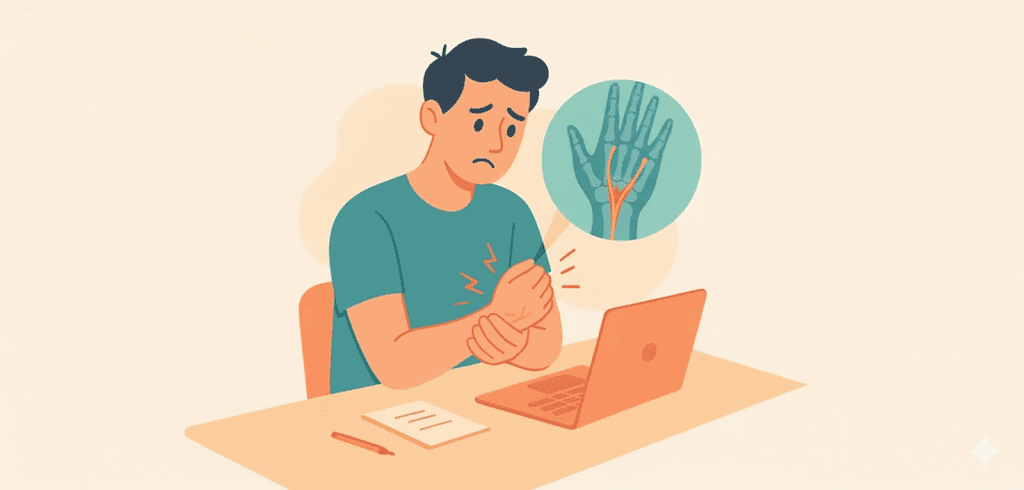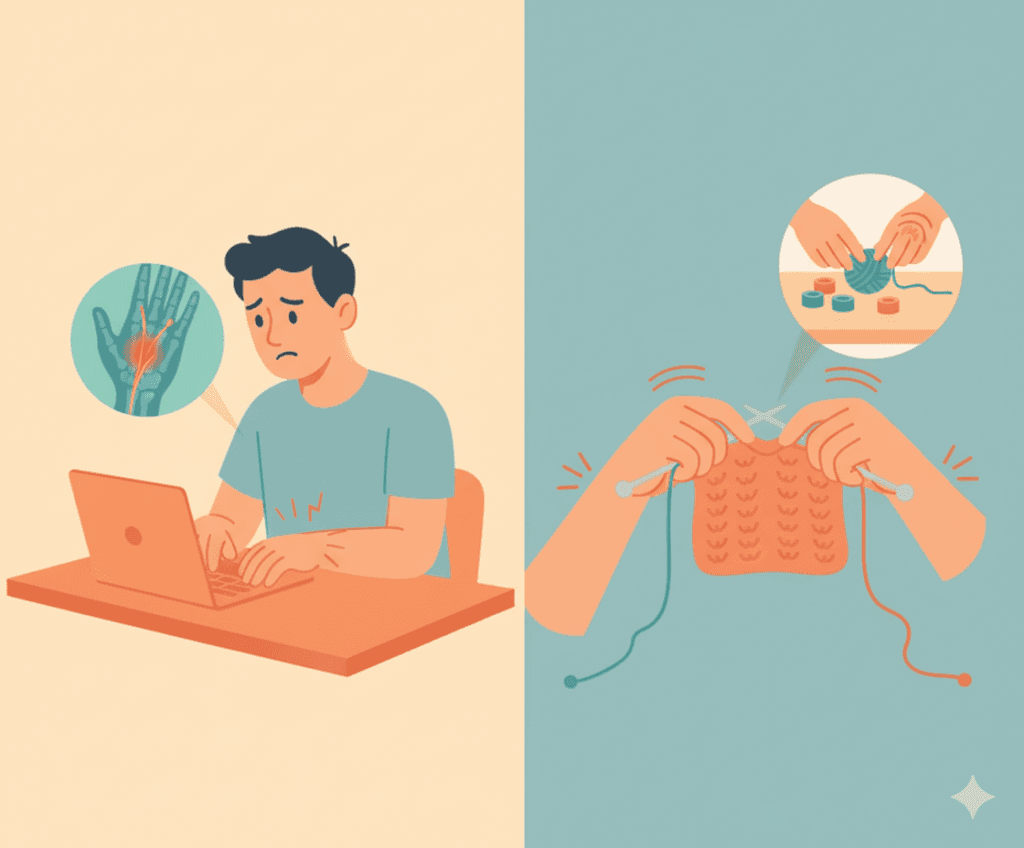Carpal Tunnel Syndrome

Overview
Carpal tunnel syndrome occurs when the median nerve becomes compressed as it travels through the narrow passageway in your wrist. This pressure causes tingling, numbness and sometimes weakness in your hand. It’s especially common in women aged 40–60 and during pregnancy due to fluid retention. Many sufferers in Sydney work in occupations requiring repetitive wrist movement or prolonged computer use. Early diagnosis and management can prevent permanent nerve damage.
Understanding Carpal Tunnel Syndrome: Expert Care You Can Trust
If you're experiencing tingling, numbness or burning pain in your wrist or hand, you're not alone. At CURA Medical Specialists, our experienced neurologists Dr. Shadi El‑Wahsh, Dr. Grace Swart and Dr. Henry Vo provide compassionate, expert care for carpal tunnel syndrome right here in Sydney. We're here to help you understand your condition and find the right treatment path.
What is Carpal Tunnel Syndrome?
Carpal tunnel syndrome happens when the median nerve – which carries sensation to your thumb, index and middle fingers and controls some hand muscles – comes under pressure in the narrow passageway of your wrist. Swelling of the tendons or anything that narrows the carpal tunnel squeezes the nerve. In Australia this condition is particularly common among people aged 40–60 and those whose work involves repetitive wrist movements, such as typing, assembly-line work, hairdressing or carpentry. Women are affected more often than men, and symptoms frequently appear during pregnancy when fluid retention increases.
Recognising the Warning Signs
- Tingling, pins and needles or numbness in the thumb, index and middle fingers.
- Pain or burning sensations in the wrist or hand that may radiate up the forearm.
- Weak grip strength or clumsiness, such as dropping objects.
- Symptoms that wake you at night or worsen when driving or using a phone.
- Seek urgent medical attention if you experience sudden weakness, loss of feeling, severe pain or muscle wasting.
Don’t ignore these warning signs. Early assessment at CURA Medical Specialists prevents permanent nerve damage and helps you regain comfortable hand function.

Common Causes & Risk Factors
- Wrist injuries or fractures can cause swelling of tendons or fluid retention, increasing pressure in the tunnel.
- Repetitive hand and wrist movements such as typing, knitting, carpentry or assembly‑line work.
- Medical conditions including diabetes, hypothyroidism, rheumatoid arthritis, gout and kidney disease.
- Hormonal changes or fluid retention during pregnancy or menopause symptoms often resolve after childbirth.
- Being overweight or obese, particularly for women aged 40‑60.
- Occupations common in Sydney such as construction, hairdressing, music performance and prolonged office or computer work.
Understanding these factors helps us tailor your care. If you have several risk factors, speak with our team about preventative strategies.
Diagnosis at CURA Medical Specialists
- Comprehensive history and physical examination focusing on hand sensation, muscle strength and provocative tests such as Tinel’s sign and Phalen’s test.
- Nerve conduction studies (NCS) and electromyography (EMG) to measure how quickly electrical signals travel through the median nerve.
- Ultrasound or MRI imaging to evaluate structural causes such as tendon swelling, cysts or arthritis.
- Blood tests to identify underlying systemic conditions like thyroid disorders, diabetes or inflammatory diseases.
These evaluations allow us to tailor a precise treatment plan for you.

Treatment Options
- Lifestyle and activity modifications: avoid repetitive wrist motions, take regular breaks and maintain a neutral wrist posture.
- Night‑time wrist splints to keep your wrist in a neutral position and relieve pressure on the median nerve.
- Treat underlying conditions such as diabetes, thyroid disorders or rheumatoid arthritis to reduce nerve swelling.
- Physiotherapy and hand exercises to improve flexibility and strength, and ergonomic adjustments at home and work.
- Medications: non‑steroidal anti‑inflammatory drugs for pain and inflammation; corticosteroid injections to reduce swelling around the median nerve.
- Surgery (carpal tunnel release) for severe or persistent cases, performed by experienced surgeons to relieve nerve pressure quickly.
Most patients improve with conservative treatment; our team will guide you to the least invasive option for your lifestyle.

Why Choose CURA Medical Specialists?
- Experienced neurologists and allied health team specialising in nerve compression disorders.
- Advanced diagnostics on-site, including nerve conduction studies (NCS), electromyography (EMG) and ultrasound.
- Patient-centred approach: we listen to your concerns, tailor treatments and offer same-day appointments where possible.
- Convenient Drummoyne location with ample parking and easy access via public transport.
- Warm and friendly environment focused on delivering compassionate, evidence-based care.

Frequently Asked Questions
- Can carpal tunnel syndrome go away on its own? Mild cases, particularly during pregnancy or after a specific overuse event, often improve with rest, splinting and addressing the underlying cause.
- Will I need surgery? Most patients improve with non‑surgical treatment. Surgery is recommended only when symptoms are severe or fail to improve after conservative therapy.
- How long does recovery take? With splinting and activity modification, many people notice improvement within weeks. Surgical recovery generally takes several weeks, with full nerve healing over months.
- Can it be prevented? Avoid repetitive strain, take regular breaks, adjust workstation ergonomics and treat underlying medical issues.
Book Your Consultation Today
Take the next step toward relief. Schedule a consultation with our specialists today by calling us at (02) 7906 8356 or booking online through our secure patient portal at the top of this page.
Our friendly team will help you find a convenient appointment time at our Drummoyne Penrith clinic.
Don’t wait—early diagnosis and treatment can prevent long‑term nerve damage and keep your hands functioning comfortably.

Dr. Hugh Stephen Winters
Stroke and Interventional Neurologist, MBChB (Auckland), FRACP (Neurology), CCINR (Neurology)
Reviewed on: 13 September 2025


